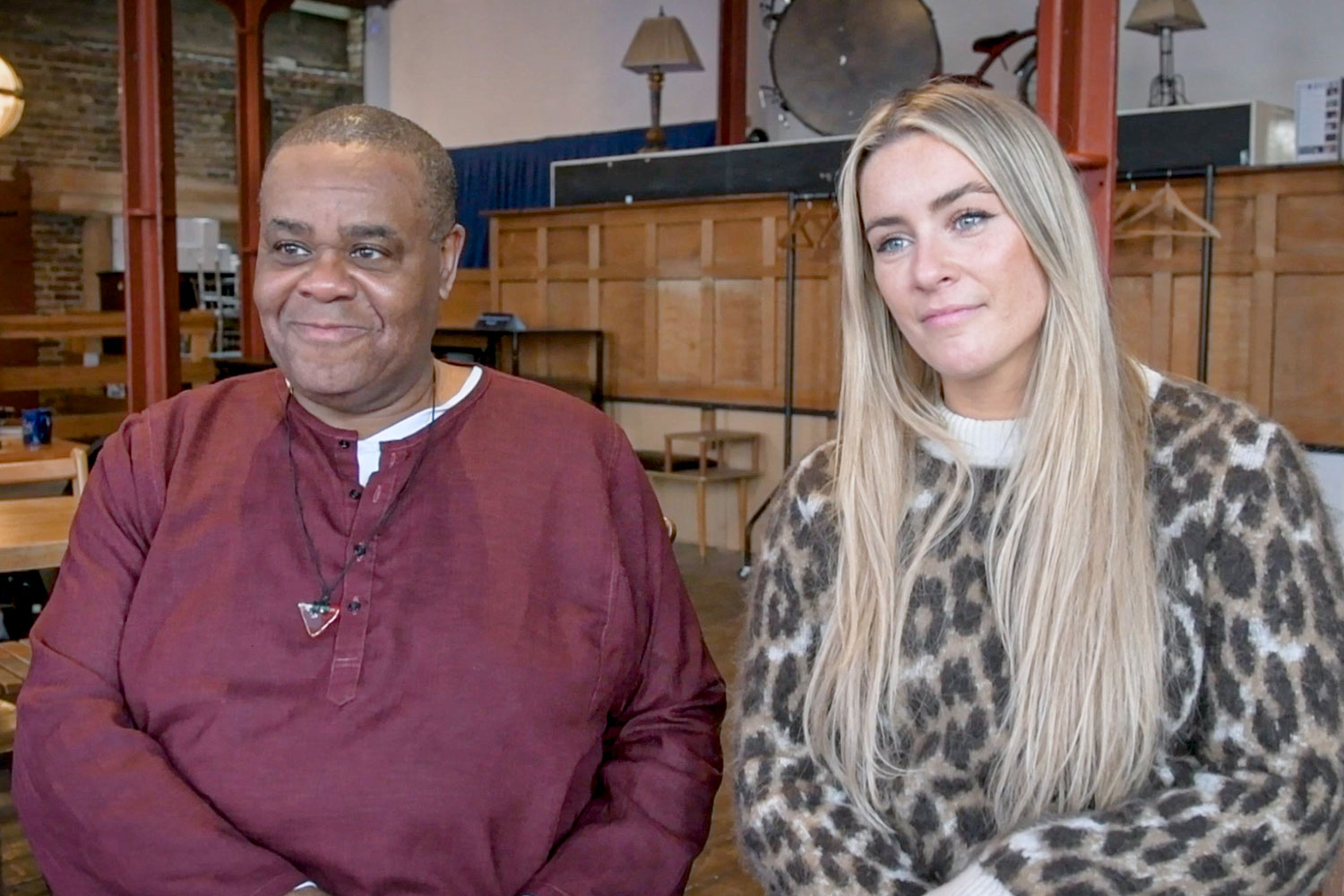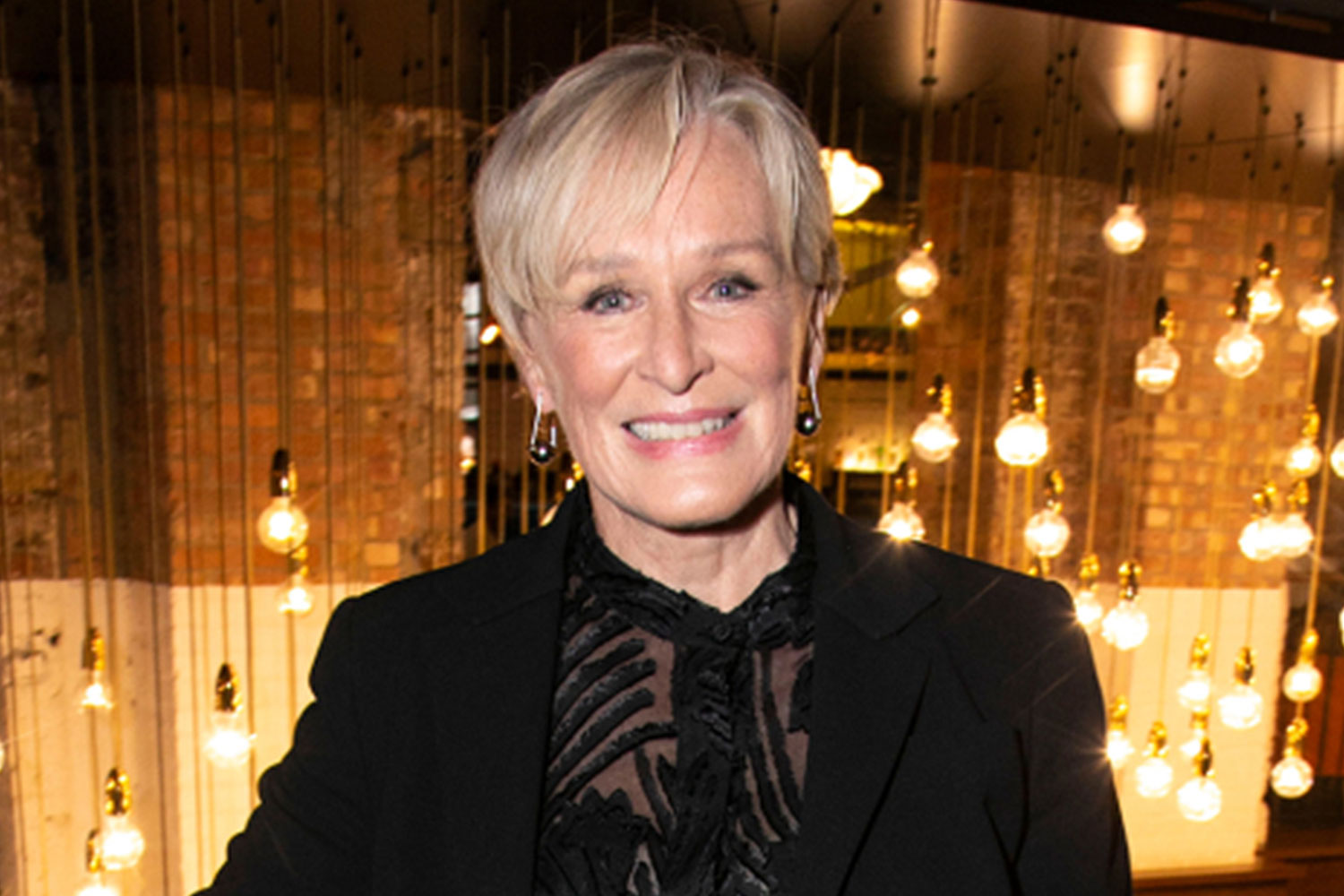The Little Dog Laughed, Douglas Carter Beane’s satire on the delicate balance between sexuality and success in the high-pressure world of Hollywood, opened last night at the Garrick Theatre (See Today’s 1st Night Photos).
Jamie Lloyd directs the Broadway transfer, which centres on up-and-comer Mitchell (
Rupert Friend), a charismatic and ambitious young actor who intends to keep his homosexuality hidden from the public. Things grow complicated, however, when he falls for a sexually confused male prostitute (
Harry Lloyd), who at the same time must decide what to make of his non-platonic lady friend Ellen (
Gemma Arterton). All the while Mitchell must navigate his way through difficult career decisions, for most of which he seeks consultation in the form of his brazen and ruthless lesbian super-agent Diane (
Tamsin Greig).
Most overnight critics agree that Greig’s performance represents the production’s high-water mark. The Independent’s Paul Taylor states that her performance “shows you a woman who has a well-thumbed movie-industry directory where her heart should be,” while the Guardian‘s Michael Billington, in a four star review, notes that “the play belongs to Diane,” as Greig “brings the right demonic energy and well-tailored control-freakery to the role.”
Elsewhere, there were a few grumblings regarding Beane’s script, and indeed the wisdom of the transfer. The Times’ Benedict Nightingale goes so far as to
say the plot has “very little sense of struggle, let alone depth,”
with the Daily Mail’s Quentin Letts adding that if it were not “for
glorious Tamsin Greig, the West End’s latest American import would be
a disaster. The Little Dog Laughed would die.”
Michael Coveney on Whatsonstage.com (one star) – “Douglas Carter Beane’s excruciating Broadway import The Little Dog Laughed – supposedly driven by a desire to update the Rock Hudson story – has been devised in the first place here by director Jamie Lloyd as an excuse for Tamsin Greig to bawl at the audience for a couple of hours, striking poses that would make even the sainted Beatrice Lillie, let alone the Statue of Liberty, blanche with embarrassment … The plot curdles round this faux Pirandellianism … Harry Lloyd giving the only bearable performance of the evening … Will the stage lighting by Jon Clark suddenly turn green again for no apparent reason, or back to purple? Will Tamsin Greig strike another pose, or will I strike her first? These are the questions that litter an evening of mounting comedy froideur, poor writing and gross self-indulgence. Soutra Gilmour’s white classical design mixes antiseptic hotels and dining rooms with front cloths and a front stage where Greig twitters tediously through the ‘fourth wall.’”
Paul Taylor in The Independent (three stars) – “Mitchell is a dashing boy-next-door type actor and aspiring movie star, whose professional secret is that he is gay. The character who powers the evening forward, though, in Jamie Lloyd‘s enjoyably breezy and knowing production, is Diane, Mitchell’s diabolically cynical lesbian agent. She makes the average monstre sacré look like a fluffy kitten in a cat-food advert. If there were an Olympic decathlon for bravura bitching and Machiavellian scheming, she’d win the gold, silver and bronze. And in a performance of brilliantly malign energy, Tamsin Greig shows you a woman who has a well-thumbed movie-industry directory where her heart should be … But ironically the character could also be construed as the bravura, flouncing Spirit of Theatre … metrosexuality never gets a proper look in this play where the characters seem to be locked into slightly dated notions of what is possible … there’s an increasing danger that a comedy as relentlessly in-the-know about showbiz amorality as this will eventually outsmart itself. The scenes that attempt emotional seriousness ring hollow and false. The thin characterisation of the young girl suggests that the author is much less interested in straight, sincere females than he is in dyke divas … the production has a lot of diagrammatic pep and Tamsin Greig is phenomenal as corrupt Hollywood ambition incarnate.
Quentin Letts in The Daily Mail – “But for glorious Tamsin Greig, the West End’s latest American import would be a disaster. The Little Dog Laughed would die. Paws stiff. All four of them pointing to the ceiling. It is a measure of Miss Greig’s sparkle that she rescues the thing, milking the laughter by producing her full range of sarcastic, English comedy gestures which sit strangely alongside the American dialogue … Perhaps one day an innovative playwright will invent an agent who is kind and honest. But Douglas Carter Beane, who wrote this show, is cliché’ in ink … It’s simply the comedy angles and the characterisation that are flabby. The cadences of the language, too … The plot twist, when it comes, is as well signposted as Membury Services off the M4. Mr. Friend and Mr. Lloyd are good-looking boys but they really struggle to keep the first half alive. The show only picks up with a scene in a Manhattan diner shortly before the interval. If Miss Greig was not present, would anyone return for the second half?
Michael Billington in The Guardian (four stars) – “Although it is resolutely American, I hope it thrives over here because it deftly satirises Hollywood’s eternal hypocrisy about sex; even today … this play is both funny and perceptive about Hollywood’s contempt for wordsmiths and its sexual double standards … The play belongs to Diane, and even if Tamsin Greig is a bit broader than her Broadway counterpart, she brings the right demonic energy and well-tailored control-freakery to the role: she is diabolically funny in the best scene where, at a lunch with the unseen writer, she conveys her deep-seated disdain for the ‘fag playwright’. Rupert Friend as her smitten client, Harry Lloyd as his boyish lover, and Gemma Arterton as the latter’s disposable squeeze all offer good complementary support, and Jamie Lloyd‘s production is smooth as butter. The play may be too show-bizzy for some tastes but, behind its Manhattan waspishness, lurks a general truth: while Hollywood may be the global dream-factory, it still lies about its operatives’ sex-lives.”
Benedict Nightingale in The Times (three stars) – “There’s a point at which bright becomes brittle, and another at which smart becomes smartass, and there are moments when Douglas Carter Beane’s bright, smart and often enjoyable play crosses both boundaries … at least this dilemma allows Tamsin Greig to give a terrific performance as a Californian agent … Greig’s Diane makes entrances like John Wayne swaggering into a saloon … The trouble is that you don’t feel much for the visible characters who become her toys and victims: Rupert Friend’s affable but bland Mitchell, Harry Lloyd’s sweet and considerate Alex, and Gemma Arterton as Alex’s forlorn girlfriend. There are plenty of sharp, sassy lines … but very little sense of struggle, let alone depth. I suspect Beane and his director, Jamie Lloyd, would like us to see the play as a cutting yet affectionate portrait of four emotionally damaged loners in fame-obsessed America. That’s a stretch.”
Charles Spencer in the Daily Telegraph (four stars) – “Beane plays clever games with his material, so we belatedly realise that we might just be watching the very film script the agent has always secretly been planning … Director Jamie Lloyd’s production has exactly the right light, cynical touch and there is a thrilling star turn from Tamsin Greig who plays the agent as a couture-clad monster of cynicism, deviousness, and unrepentant ambition, switching from bullying outrage to silky manipulation at the flick of an eyelid … Rupert Friend and Harry Lloyd ensure that the love interest never descends into the downright mawkish, while former Bond girl Gemma Arterton proves genuinely touching as the confused girlfriend. No one could claim this is a deep comedy, but it is smart, tart and bang on the money.”
– by Alex Mangini










